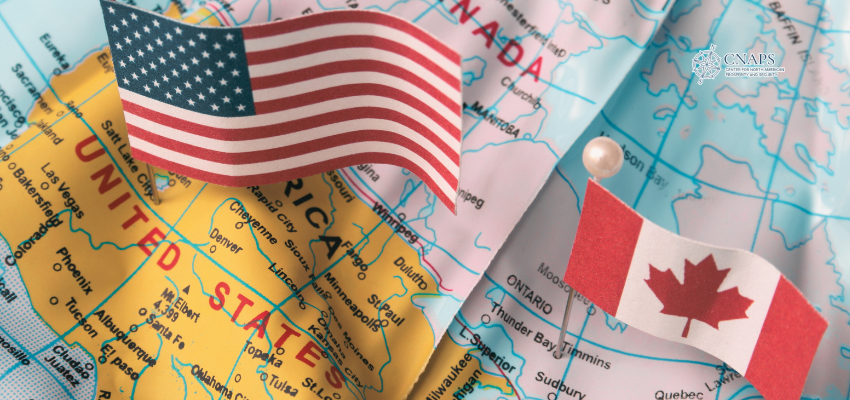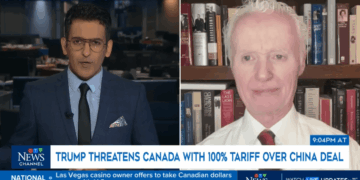This article originally appeared in the Vancouver Sun.
By Jerome Gessaroli, January 29, 2025
While the threat of 25 per cent tariffs on Canadian exports has captured headlines, an even bigger storm is brewing south of the border. The Trump administration’s sweeping plans for corporate tax cuts, deregulation, and government downsizing could unleash an investment and innovation boom that would leave Canadian companies struggling to compete — tariffs or no tariffs.
While Canada must vigorously oppose the potential tariffs, viewing their resolution as a return to business-as-usual would be dangerously short-sighted. With Republicans controlling both Congress and the White House, their pro-business agenda will face few obstacles.
At the centre of this change is the Department of Government Efficiency (DOGE), led by Elon Musk. Despite criticism focused on this polarizing figure, the department’s mission to cut $2 trillion from the federal budget by July 2026 should not be dismissed. Musk has a proven track record of disrupting established systems. DOGE’s mandate covers scaling back regulations, streamlining administration, and cutting costs.
Trump’s tax plan will amplify this deregulation and spur growth. Trump plans to make current personal tax rates permanent and reduce corporate taxes to 15 per cent for domestic manufacturers (and 21 per cent for others). Add in full deductibility for machinery, equipment, and R&D expenses, and U.S. businesses will have more capital available and freedom to innovate and invest.
U.S. corporate dominance is already clear. The “Magnificent Seven” tech giants — Apple, Microsoft, Alphabet, NVIDIA, Meta, and Tesla — have a combined valuation of $18 trillion US, exceeding the GDP of every country except the U.S. and China. Microsoft alone in 2023 was worth more than all companies in the S&P/TSX Composite Index. Also in 2023, these seven companies spent $177 billion US on capital expenditures and $242 billion US on R&D. Compare this to Canada’s total corporate R&D spending of just $23 billion US. Proposed policies would put these and other American firms on economic steroids.
With regard to capital investment, Canada faces challenges. From 2014 to 2022, Canadian investment in capital equipment fell by $34 billion in real terms. Even more telling, just 12 per cent of Canada Pension Plan funds are invested in Canada. When our largest pension fund finds better opportunities abroad, we have a problem. The solution is not to mandate or coerce more domestic investment — that would lead to lower returns and more problems.
For example, the federal government’s 2035 net-zero electricity mandate inhibits investment in AI data centres, and other crucial elements in developing Canada’s AI sector. The government’s recent offer of incentives, of up to $15 billion for pension investments in these centres, is merely a band-aid solution.
This example also highlights government policies working at cross-purposes: a mandate set in place that effectively stops AI data centre construction and another policy to fix the mandate’s unintended consequences. This pattern of creating problems through regulation and then needing to introduce new interventions to fix them has become all too familiar in Canadian policy.
The solution is not to resist U.S. policy changes but to reform our own system. The key is for politicians to realize that the government cannot subsidize and mandate our country’s path to prosperity.
Canada needs to simplify taxation, slash mandatory reporting requirements, eliminate billions in direct government subsidies, and replace unrealistic climate targets with achievable goals that do not sacrifice economic growth. These reforms will require sustained political will to carry out, but they are essential to reverse years of misguided policies that have undermined our competitiveness.
Such changes would not only help buffer against U.S. tariffs but also make Canada an attractive destination for American investment and business expansion.
One does not have to agree with Trump’s policies or admire Musk to recognize that their success could supercharge already highly competitive U.S. businesses. The challenge for Canada is clear, adapt and reform or watch our standard of living continue to decline.
Jerome Gessaroli is a senior fellow at the Macdonald-Laurier Institute and leads the Sound Economic Policy Project at the B.C. Institute of Technology.








